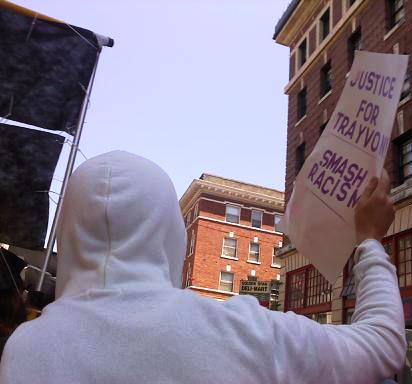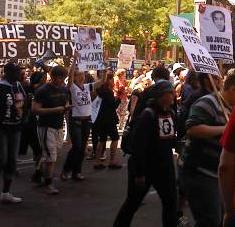I keep seeing posts online by graduate students (those working on Master’s degrees or Ph.Ds) about how much their lives suck and how oppressed they are.I sympathize with those who are grad students who are genuinely are being mistreated – such as those working as Graduate Assistants who are being asked or pressured to work extra hours without pay (which is highly unethical but far too common), and students of color who are not being granted equal opportunity as their white peers – but that’s what not what this rant is about. This rant is about graduate students who feel they are being victimized simply because they are graduate students and because OMG, being a graduate student in the hardest thing in the fucking universe.
Before anyone questions my ability to truly understand how oppressive graduate school is because maybe I haven’t been through a grad program myself or something, let me say that I do have an advanced degree in my field. I got this degree after dropping out of two other graduate programs, and I believe I only finished the degree I do have only because every day for over a year I repeated the same mantra to myself, “I just need to fucking finish.” I know graduate school isn’t easy. I’m not about to suggest that it is.
But, look. Here’s the thing. Graduate school is a privilege. Yes, I know, grad students, you’re drowning in loan debt, you’re broke, you’re buying cheap cigarettes and eating canned soup at home because you can’t afford to go out, which makes you feel like you’re part of some fringe minority group suffering while others stand idly by. But the truth is – you’re not.
You are among a minority, sure — but it is the minority of those who have been given access to the highest levels of education. In March of 2011, the U.S. Census Bureau reported that 30% of American adults held Bachelor’s degrees , and that’s the highest number ever on record. That means that if you “only” have a four-year degree, you already have a higher education level than seven out of ten Americans. And according to this New York Times article, at least in 2011, less than 11% of Americans held graduate degrees. You will be – or already are, if you are working on a second or third advanced degree – part of this population. That’s amazing. That’s tremendous.
Especially when we consider how you got there. It probably began with you thinking that you wanted to go to grad school, and with you starting to look at programs. Shopping around, as it were. Narrowing down your choices about where to apply. Now, as I recall, though my memory may be a little rusty on this point – this kind of agency is usually not something that genuinely oppressed people have in abundance. Those who are oppressed generally do not get an array of choices. They don’t get to point to a map and say, “hmm… the entire world is open to me. Where shall I go? Decisions, decisions.” Actually, that sounds more like something a financially wealthy person would say, perhaps about where to take their yacht. I know – not all of you are from wealthy backgrounds. As the first person in my family to graduate from any kind of college when I finished my Bachelor’s, I get that, and I’m not saying that you do.
What I’m saying, though, is that you have other resources. Because the next step in the process was that you applied, and then people selected you to go to their school. And then you were chosen. Not targeted, like a religious minority being persecuted or a victim of a hate crime being attacked, but chosen like the winner of a blue ribbon at the state fair, or, you know, someone who is hired for a position at a company. These folks looked at your application materials and thought, “yes, this person is one of the best and brightest. This person is smart. This person has potential. We want this person at our school.” While others were rejected, you were not.
Then, the most important step of all: You accepted.Now, maybe you didn’t know every single little thing that would be waiting for you on the journey ahead when you signed up. But do we ever know about anything we agree to completely before we do it? When we get married, do we know about the fight we’ll have in fifteen years? When we buy a car, do we get to see every issue the vehicle might have in advance? All we can do is research as much as we can and then come into any situation armed with knowledge and our own best judgment. And when it comes to graduate school, we can get a lot of that knowledge beforehand. We can compare schools side by side. We can email, meet with, and talk to professors in the department. We can interview current and former students. So on and so forth. Sure, you maybe didn’t realize that you wouldn’t be able to see friends who live far away very often, or that you would have to give up your favorite hobby to make time for school. Maybe you didn’t realize that grad school requires a lot more investment than undergrad, and that other friends of yours who don’t go to grad school will have more money than you. But the potential for these things to happen – well, that information is out there, or, rather, out here – on the Internet. It’s also circulating among your friends who have already gone to grad school, and your professors at your Bachelor’s degree institution who went to grad school themselves. You’re a smart person (you got into grad school, didn’t you?), and so you must have had at least an idea of what you were getting into when you chose to enroll.
Last but not least, graduate school is not a prison. You are free to leave any time. That’s not to say that you’ll be able to find a great job with just a Bachelor’s Degree in Philosophy or Underwater Basketweaving or whatever (I certainly couldn’t, with my degree), but — you are not physically mandated to be there. Even if somehow you’ve become convinced that you’re stuck there — you are absolutely not. You still have choices, just like you did before you got there. Sure, maybe having a job making a million dollars isn’t one of them for you, and maybe that feels overwhelming. And maybe you need to pay back a lot of student loan money after you graduate and that feels overwhelming. But please, use the intelligence you (clearly) have, and while you’re multitasking between writing all those papers and/or talking about how many you have to write — please take a moment to check yourself before you start using that other “o” word.

